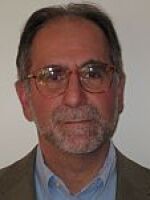The late George Sheehan, a New Jersey cardiologist who was a guru of sorts to runners a generation ago, once observed: “The runner seeks peace. The walker has found it.”For years, I agreed with that statement. Indeed, I have often felt blessed that my forced exit from running as a result of injuries did not occur until my late forties, when lacing up hiking boots instead of running shoes, suited me just fine. A faster pace and regular competition had been important to me in earlier years, but by my late forties, they no longer seemed so necessary or desirable.
More recently, two experiences have persuaded me that Dr. Sheehan’s quotation may need a bit of editing. That is, I am now persuaded that one need not have achieved peace to become a hiker; rather, one can find peace through hiking. One such experience was seeing the movie “Wild,” which recounts a young woman’s solo hike on the Pacific Crest Trail in 1995, when she was 26 years old. Cheryl Strayed was angry, and her life was spinning out of control when she became infatuated with hiking the PCT. She sought to treat the pain associated with her father’s abusiveness and her mother’s death with a toxic home brew of heroin and promiscuity, which succeeded only in adding a divorce to her list of problems. Still, she completed the 1,100-mile PCT in three months, finding nature’s peace and her own self-respect along the way.
Another experience that changed my view of the Sheehan quote was reading about “Warrior Hike,” a nonprofit organization that sponsors annual hikes of the Appalachian Trail by veterans seeking to recover from the psychological toll of their service in Iraq and Afghanistan. Corporate sponsors donate equipment, and veterans’ organizations treat the hikers to a meal off the trail once a week. One veteran said of hiking the A.T.: “There are times when you feel miserable, but there’s a lot of reward. It puts you in a better place mentally. It clears your head, puts things in perspective, and teaches you to live more simply,” he concludes.
Indeed, hiking is therapeutic for what it offers and what it lacks. It offers natural beauty, serenity, and time to think. It lacks crowds, traffic, deadlines, and all manner of mobile devices. It is a church for the unchurched, and for the churched, a confirmation of deeply held beliefs. So, with apologies to Dr. Sheehan, I suggest a slight modification of his old aphorism. “The runner seeks peace; the walker does too, but at a slower pace.”





